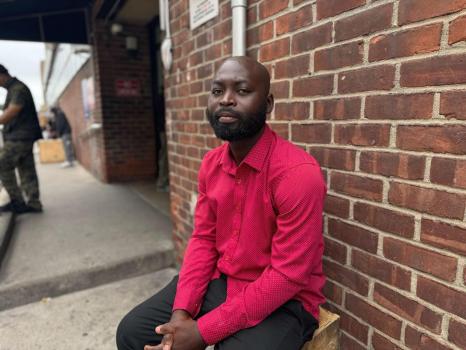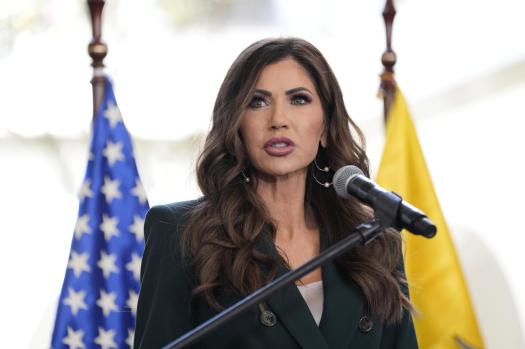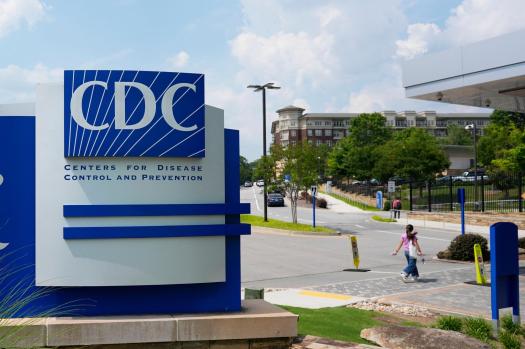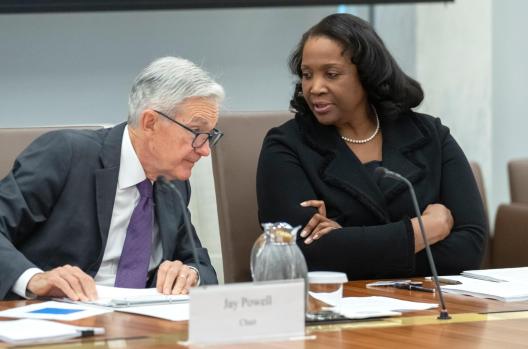Written by Juan A. Lozano
HOUSTON (AP) Nine people entered not guilty pleas on Wednesday to felony charges filed in a rural Texas county by Republican Attorney General Ken Paxton. The charges include a former mayor, a member of the city council, and the chief of staff to a state representative. The investigation is part of a larger elections probe that is being criticized by Latino rights activists as being politically motivated.
Related Articles
-
CDC shooting marks latest in a string of hostility directed at health workers. Many aren t surprised
-
Mexico says 26 capos sent to US were requested by Trump administration, not part of tariff talks
-
Jury finds Texas couple guilty of concealing and harboring bakery workers in the US illegally
-
Trump administration ordered to restore some withheld grant funding to UCLA
-
A tale of two Chief Pams: Federal takeover brings confusion over command of DC police
The nine individuals appeared before state District Judge Sid Harle in Pearsall, Texas, either in person or via Zoom.
Vote harvesting, a felony that frequently entails payment for gathering and delivering absentee ballots of others, is the charge against all nine of the individuals who were indicted in late June.
As part of Paxton’s investigation, six other individuals were indicted in May, including Frio County Judge Rochelle Camacho, the county’s top elected official.
State Representative Elizabeth Campos’ chief of staff, Juan Manuel Medina, was among those who entered a not guilty plea on Wednesday. In addition, Medina served as the previous chairman of the Bexar County Democratic Party, which is home to San Antonio.
Gerry Goldstein, Medina’s attorney, declined to comment on Wednesday. “I will speak in the courtroom,” Goldstein declared.
Goldstein filed a motion on Wednesday to have the indictment against Medina dismissed. Medina is charged with paying two individuals as a third party for vote harvesting in February 2024.
Goldstein argued in the request to dismiss that the vote-harvesting law violates the First Amendment by being too broad, ambiguous, and restricting constitutionally guaranteed rights to free speech and to take part in the election and voting process.
In the motion, Goldstein stated that without needing any real voting fraud, coercion, or intimidation, the vote-harvesting Act would seem to punish a wide spectrum of protected speech, including essential political expression and non-coercive voter assistance.
In his 20-page request, Goldstein stated that Medina should have the indictment dropped since it accuses him of a non-criminal capacity.
As third-degree crimes, the vote-harvesting charges carry a maximum sentence of ten years in jail. Additional indictments were filed in June against former state representative Cecilia Castellano, Frio County Commissioner Raul Carrizales, former Dilley Mayor Mary Ann Obregon, former Dilley City Council member Inelda Rodriguez, former Pearsall school district trustee Mari Benavides, Pearsall school district trustee Petra Davina Trevino, Susanna Carrizales, and Rachel Leal.
Calls for comment were not immediately answered by the lawyers for Raul Carrizales, Susanna Carrizales, Castellano, Obregon, and Rodriguez. Benavides, Leal, and Trevino’s lawyers were not immediately available for comment.
A call and email requesting comment from Paxton’s office and Audrey Gossett Louis, the 81st Judicial District Attorney, whose office submitted the case to a grand jury with the Texas Attorney General’s Office, were not answered.
Paxton stated last month that any elected person who attempts to rig the system will be held accountable.
Under my leadership, the entire weight of the law will be used to any attempt to manipulate elections and stifle the will of the electorate. In a statement, Paxton declared that he will keep fighting to guarantee free and fair elections in Texas.
Following the 2020 election, Paxton launched an investigation to uncover voter fraud, which is uncommon and usually happens in isolated cases. The indictments were the most recent step in this probe. In recent years, Texas has tightened its voter restrictions and imposed harsher fines, which opponents and Democrats claim are tactics to discourage Black and Latino voters from casting ballots.
Last year, the state law that strengthened voter restrictions and stiffened punishments for vote harvesting was upheld by a federal appeals court.
Juan A. Lozano can be followed at https://twitter.com/juanlozano70.












